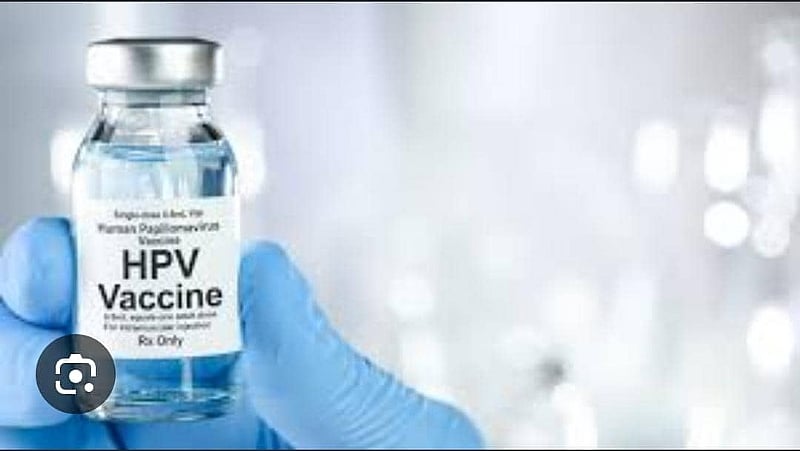Ghana’s proactive approach to public health has reached a pivotal moment with the arrival of the first batch of Human Papillomavirus (HPV) vaccines, signaling the commencement of a nationwide campaign to protect young girls from cervical cancer. This initial delivery of 441,860 doses represents the first phase of a broader initiative that anticipates the procurement and distribution of over 2.5 million doses. Spearheaded by UNICEF, the procurement and delivery of these vaccines underscore a global commitment to eradicating preventable diseases, particularly those disproportionately affecting women in developing nations. The vaccines mark a tangible step towards realizing a future where cervical cancer, a largely preventable disease, is no longer a significant threat to women’s health in Ghana. This initiative represents a substantial investment in preventative healthcare, aimed at protecting future generations and empowering young girls to lead healthier, more productive lives.
The upcoming nationwide immunization campaign, scheduled for September 2025, is the culmination of extensive planning and collaboration between the Ghana Health Service and international partners. This five-day campaign will target girls aged 9 to 14, a crucial demographic for HPV vaccination as it ensures protection before potential exposure to the virus. The strategic focus on this age group maximizes the vaccine’s efficacy and establishes a foundation for long-term immunity against HPV-related cancers. Following the campaign, the HPV vaccine will be integrated into Ghana’s Expanded Programme on Immunization (EPI) as a routine vaccination for 9-year-old girls, further solidifying the nation’s commitment to preventative healthcare and gender equity. This integration ensures continued protection for future generations and represents a sustainable approach to tackling cervical cancer, a leading cause of cancer-related deaths among women.
Cervical cancer, primarily caused by certain strains of the Human Papillomavirus (HPV), remains a significant public health concern, particularly in developing countries. While highly preventable through vaccination and early screening, access to these preventative measures has been historically limited. Factors such as lack of awareness about HPV and its link to cervical cancer, limited access to healthcare services, and the high cost of vaccination have contributed to the persistent burden of this disease. Ghana’s initiative to provide free and accessible HPV vaccination addresses these barriers head-on, demonstrating a commitment to equitable healthcare access and a proactive approach to disease prevention. By targeting young girls before they reach the age of sexual activity, the vaccination program aims to significantly reduce the incidence of cervical cancer in future generations, ultimately saving lives and improving women’s health outcomes.
The decision by the Ghanaian government to incorporate the HPV vaccine into its national immunization program aligns with global health strategies and reflects the growing recognition of the vaccine’s safety and effectiveness. Over 140 countries have already integrated the HPV vaccine into their national immunization schedules, demonstrating a global consensus on its importance in preventing cervical cancer. The World Health Organization (WHO) recommends HPV vaccination for girls aged 9-14 as a crucial component of comprehensive cervical cancer prevention programs. Ghana’s adoption of this recommendation reinforces its commitment to aligning with international best practices and prioritizing the health and well-being of its citizens. This move signifies a significant step towards achieving the global goal of eliminating cervical cancer as a public health problem.
Beyond the immediate health benefits, the introduction of the HPV vaccine carries profound implications for the future of young Ghanaian girls. By preventing cervical cancer, the vaccine empowers girls to reach their full potential, free from the threat of a debilitating and potentially fatal disease. This initiative not only safeguards their physical health but also contributes to their social and economic well-being. Healthy girls are more likely to complete their education, participate actively in their communities, and contribute to the overall development of their nation. The HPV vaccination program, therefore, represents a long-term investment in human capital, empowering future generations of women to thrive and contribute meaningfully to Ghanaian society.
The implementation of the HPV vaccination program in Ghana signifies a multifaceted achievement, reflecting the nation’s commitment to public health, gender equity, and the overall well-being of its citizens. It underscores a proactive approach to disease prevention, prioritizing investment in preventative measures rather than reactive treatments. This initiative aligns with global health goals and demonstrates Ghana’s dedication to providing equitable access to essential healthcare services. Moreover, it empowers young girls by protecting them from a preventable disease, allowing them to lead healthier, more productive lives and contribute to the future prosperity of their nation. The HPV vaccination program stands as a testament to the power of preventative healthcare and its potential to transform lives and communities.


